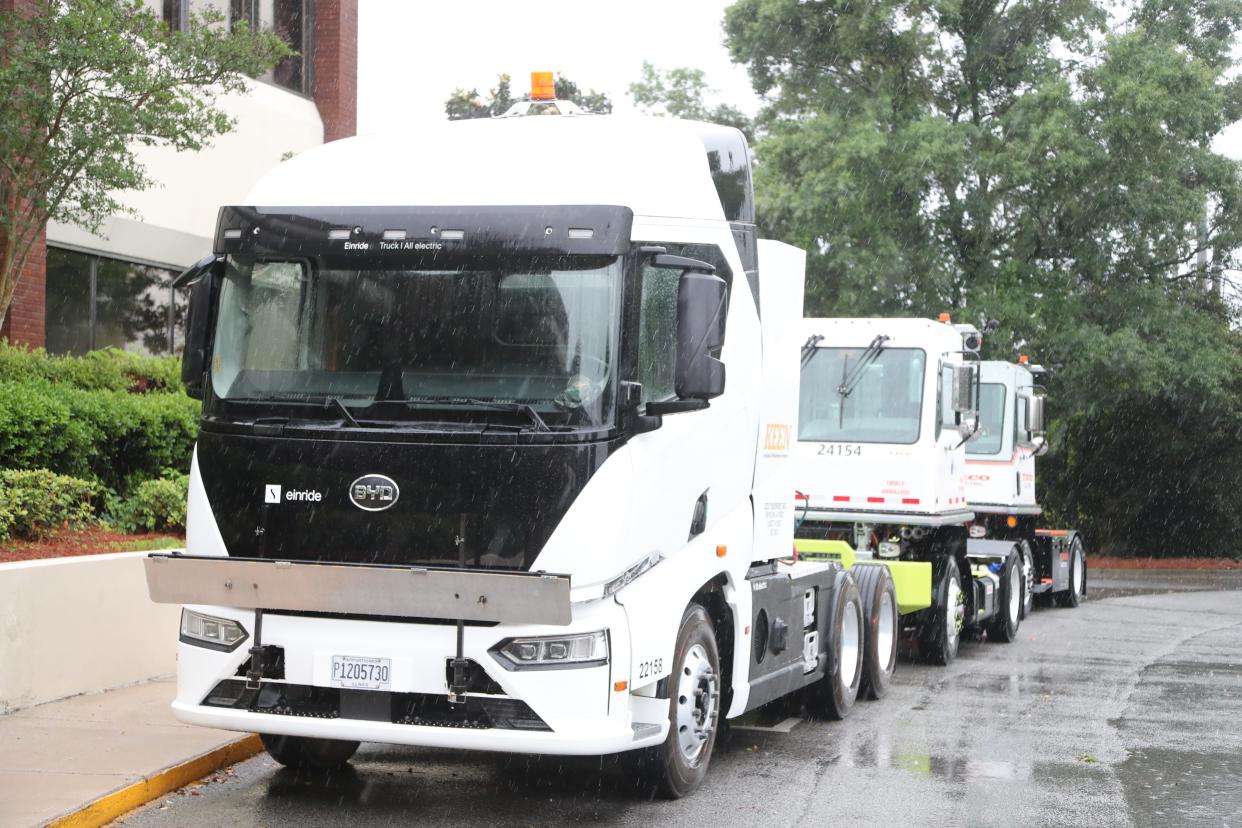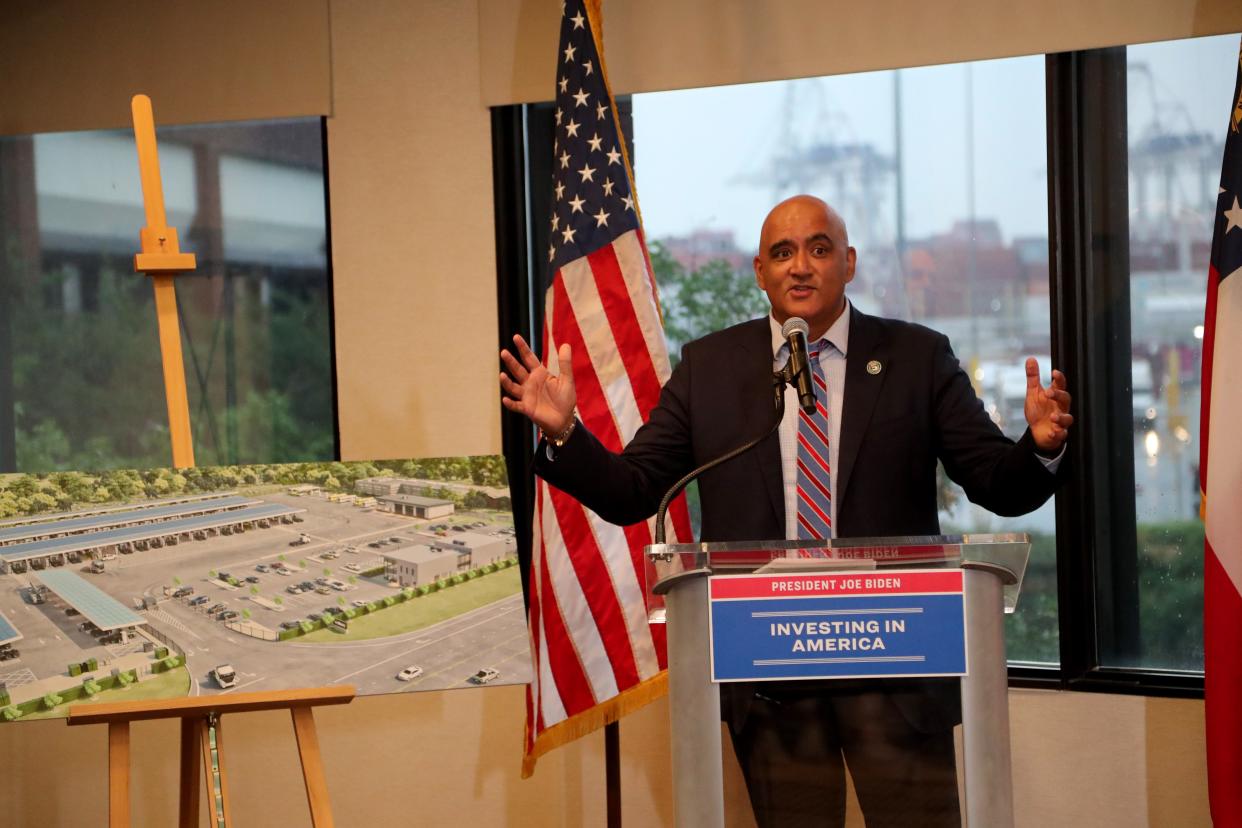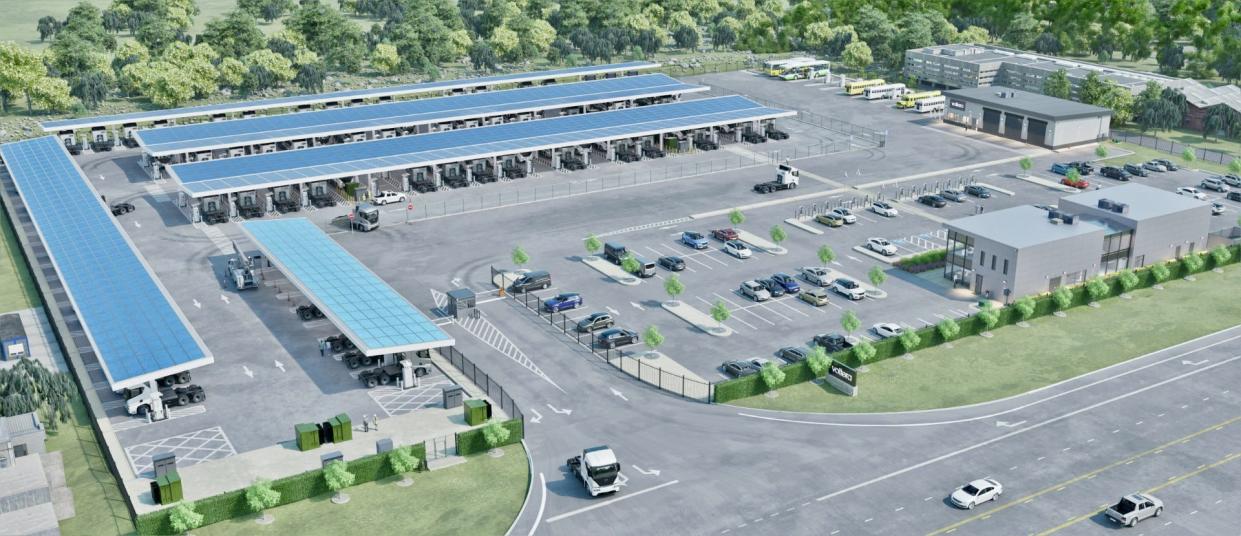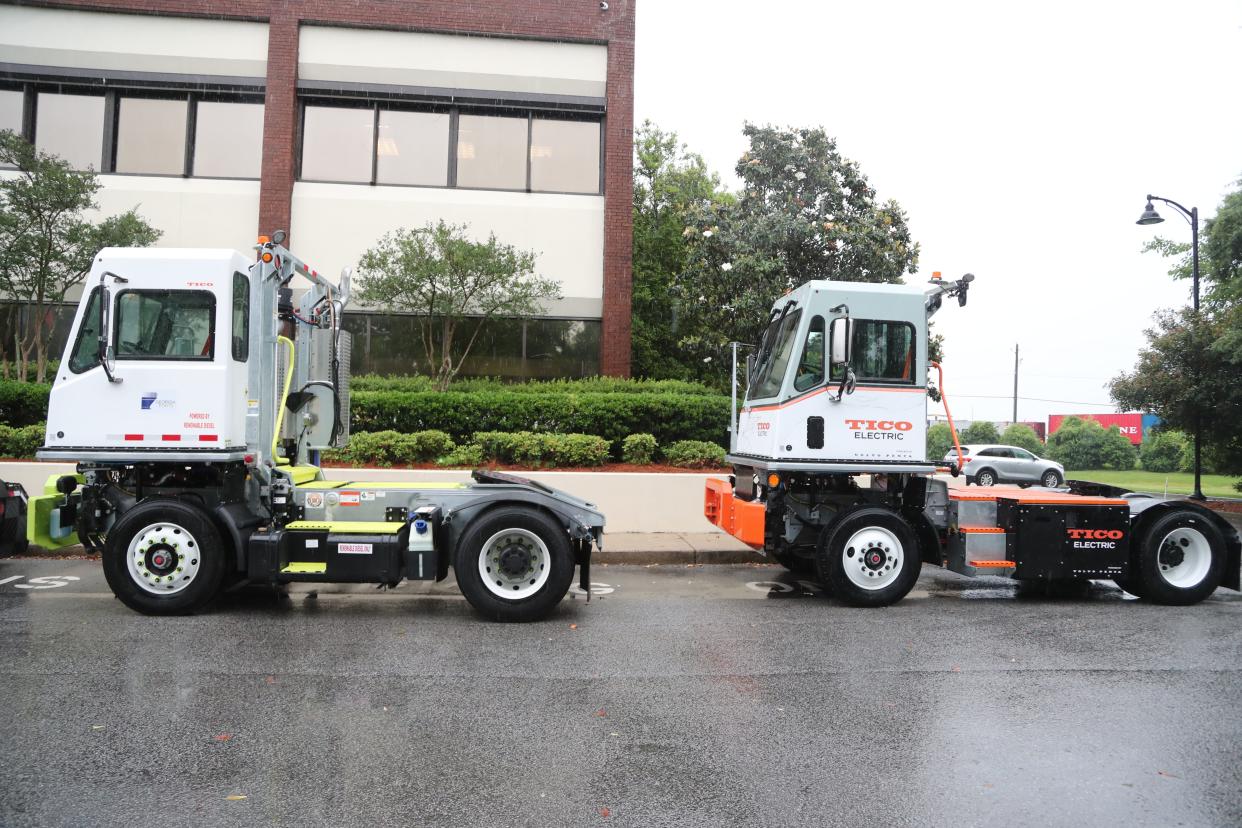Federal highway chief praises Port of Savannah projects to reduce truck pollution

On a stormy Friday morning, the head of the Federal Highway Administration stood near a conference room window at the Georgia Port Authority’s headquarters in Garden City.
As Shailen Bhatt described how more than $15 million in newly announced grants from his agency are aimed at improving air quality at and around the Port of Savannah, hundreds of drivers guided trucks through the rain in a carefully choreographed dance that resembled chaos at first glance.
On weekdays like this, those rigs will make an average of 13,000 trips between the nation’s third-largest port and an ever-expanding collection of nearby warehouses and distribution centers.
On an easel to the right of Bhatt sat an artist’s rendering of a planned facility with the capability to simultaneously charge more than 100 electric versions of the trucks maneuvering outside the window. A California-based clean-energy infrastructure company is putting a $7.8 million Federal Highway Administration grant toward the charging center, which will be a few miles from the port.
A look at the illustration and then the movement beyond revealed a disconnect. The 3,200 short-route trucks serving the port daily are nearly all powered by diesel fuel.
How, Bhatt was asked, will the owners of those vehicles be convinced to transition to still-more-expensive electric versions?
“People want to make money,” he replied. "The ‘sell’ will be, can they save money, attract drivers and affect their bottom line in a positive way?”
More federal funding: Head of FEMA praises Savannah canal project, environmental justice focus in visit to city
While those decisions rest primarily with the private sector, the government’s role in truck electrification is ensuring there is a robust charging network, Bhatt added.
Tapping funds from the 2023 Bipartisan Infrastructure Law to support projects like Voltera’s Garden City charging center contributes to that process.
“We have to make sure that trucks can get from point A to point B,” Bhatt said. “If they can do it more profitably, they’ll do it.” Bhatt said.
Class 8 electric trucks like those that would serve the port have a typical range of about 275 miles between charges. That makes them better suited for the shorter “drayage” routes.

‘Clean, quiet vehicles’
Voltera’s Savannah facility will be the company's second large-scale truck-charging station, said CEO Matt Horton, who also visited Friday.
The complex will have restrooms and other facilities for drivers to use as they wait the 2.5 to three hours it will take to fully power their truck.
Horton said the company is hoping to have the center up and running “in a year or two.”
"It's a flavor of things to come,” he added. “We think that ports across the country need this kind of infrastructure, and we're stepping in to make those investments when the truckers are ready to make the switch.”
Energy impact: New EPA rules subject Georgia Power to severe emissions restrictions at planned plants
That transition is aimed at reducing potential health risks for drivers, plant employees and residents of nearby neighborhoods.
It also will contribute to a broader effort to combat climate change.
Transportation accounts for the largest portion of heat-trapping carbon pollution nationally, with medium- and heavy-duty trucks making up about one-fourth of all transportation-related emissions, according to the U.S. Environmental Protection Agency.
"The trucks that (the electric versions) will be replacing are diesel powered (with) a lot of emissions and a lot of noise,” Horton noted while pointing to the traffic outside. Plug-in rigs “are clean, quiet vehicles.”
That was the case with an electric truck parked in front of the GPA building.
“Is it running?” a passerby asked.
“Yup,” a representative from Savannah-based Keen Transport Inc. replied. “You might hear the air compressor when it comes on, but that’s it.”

Replacing port’s ‘jockey’ trucks
Bhatt, the Federal Highway Administration leader, and other officials also praised a $7.5 million grant that will support a four-year pilot project to replace more than 600 “jockey trucks” at the Port of Savannah with models using “renewable” diesel.
Those rigs move cargo containers exclusively on the port property.
Renewable fuel, which can be mixed with traditional diesel, pollutes less than standard diesel and has a smaller carbon footprint over its lifecycle because it is produced from raw materials such as used cooking oil and animal fat waste rather than refined from extracted oil.
John Deem covers climate change and the environment in coastal Georgia. He can be reached at jdeem@gannett.com

This article originally appeared on Savannah Morning News: FHA chief praises Port of Savannah projects to reduce truck emissions
